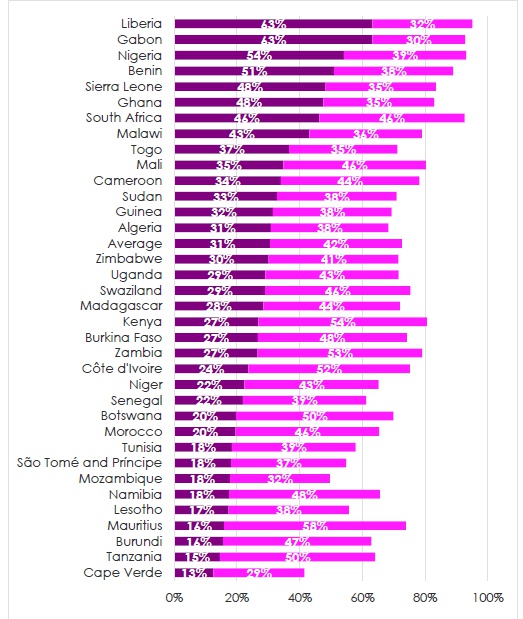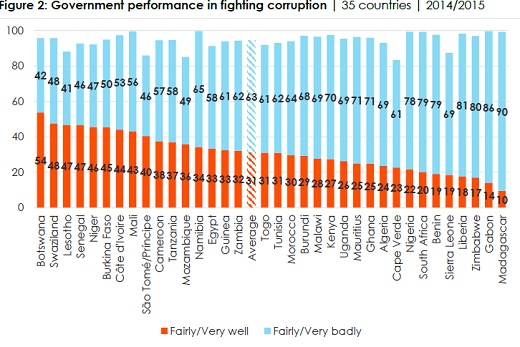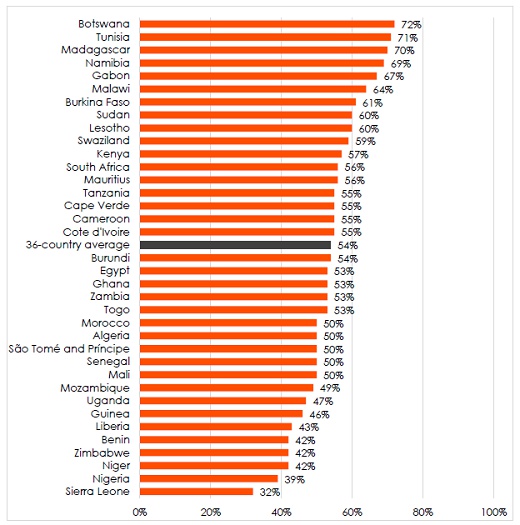Corruption is a major contributor to Africa’s stunted development. By corroding and weakening governance institutions and the democratic values of human rights, gender equality, justice, and the rule of law, it has hindered the continent’s progress toward peace and prosperity.
A 2002 AU study estimated that Africa loses about $150 billion annually to corruption.
Illicit financial outflows, particularly in the extractive industry, cost the continent about $50 billion per annum – far exceeding the official development assistance that African countries receive from Organization for Economic Cooperation and Development countries ($27.5 billion in 2016).
This makes illicit financial outflows an important aspect for African leaders to focus on.
The choice of the theme “Winning the Fight Against Corruption: A Sustainable Path to Africa’s Transformation” by the African Union (AU) for the 30th Ordinary Session of the Assembly of Heads of State and Government currently ongoing in Ethiopia is, therefore, most appropriate and timely. It could provide momentum for a more focused continental approach by Africa’s leaders to fighting corruption.
Across the continent, a majority of Africans perceive corruption in government.
In its Round 6 (2014/2015) surveys in 36 countries, Afrobarometer found that 72% of Africans see at least “some” officials in their country’s presidency as corrupt, including 31% who say “most” or “all” of these officials are corrupt (see Figure 1). Perceptions of corruption are even higher when it comes to members of Parliament, local government councillors, tax officials, judges, and the police.
Figure 1: Perceived corruption in the presidency | 35 countries* | 2014/2015

Respondents were asked: How many of the following people do you think are involved in corruption, or haven’t you heard enough about them to say: The president and officials in his office?
* Note: This question was not asked in Egypt.
Despite a variety of attempts to improve transparency and accountability, citizens are apparently unimpressed by the commitment of their government to fight graft and corruption. Only about one in three Africans (31%) say their governments are handling corruption “fairly well” or “very well” (see Figure 2). Botswana is the only surveyed country where a majority (54%) praise the government’s anti-corruption efforts; in Madagascar, fewer than one in 10 citizens (9%) agree.

What should governments do, moving forward?
The ordinary citizen cannot be ignored in the attempt to stamp out corruption. A majority (54%) of ordinary Africans believe in their own ability to make a difference in the fight against corruption.
But while this proportion is fairly high in Botswana (72%) and Tunisia (71%), it remains at less than half of citizens in nine countries, including 32% in Sierra Leone and 39% in Nigeria (see Figure 3).
Moreover, substantial numbers of citizens fear reprisals if they report corruption. Removing barriers to reporting and passing laws to protect whistleblowers are necessary if the fight against corruption is to succeed.
Figure 3: Ordinary people can fight corruption | 36 countries | 2014/2015

Respondents were asked: Please tell me whether you agree or disagree with the following statement: Ordinary people can make a difference in the fight against corruption? (% who “agree” or “strongly agree”)
Citizens also count on the news media as an important partner in fighting corruption (see Figure 4). Governments would do well to take a similar view, and to facilitate – rather than obstruct – the media’s ability to uncover corruption.
Figure 4: Media should constantly report on corruption | 36 countries | 2014/2015

Respondents were asked: Which of the following statements is closest to your view?
Statement 1: The news media should constantly investigate and report on government mistakes and corruption.
Statement 2: Too much reporting on negative events, like government mistakes and corruption, only harms the country.
(% who “agree” or “agree very strongly” that the media should report on mistakes and corruption)
Some of the African countries perceived as most corrupt are those endowed with natural resources. It is an important step that countries are subscribing to the voluntary Extractive Industries Transparency Initiative (EITI) global standards to promote the open and accountable management of natural and mineral resources. But despite the initiative’s successes over the past few years, fewer than half of African countries are members.
In some countries, governments and citizens are making progress in fighting corruption. Most states have set up agencies to fight corruption, although these agencies need to be better resourced and independent.
Some countries – Nigeria, for example – have uncovered corruption cases and retrieved billions of dollars in recent years. It is no coincidence that Nigerian President Muhammadu Buhari has been appointed AU’s anti-corruption ambassador.
Continentally, the AU already has an instrument to fight corruption – the Convention on Preventing and Combating Corruption. Since its adoption in 2006, the protocol has gained only 45 signatories and 21 ratifications among the continent’s 55 countries.
It is critical at this juncture that remaining states adopt and adhere to the norms of the convention, and move to empower and equip their anti-corruption and law-enforcement bodies to win this battle.

